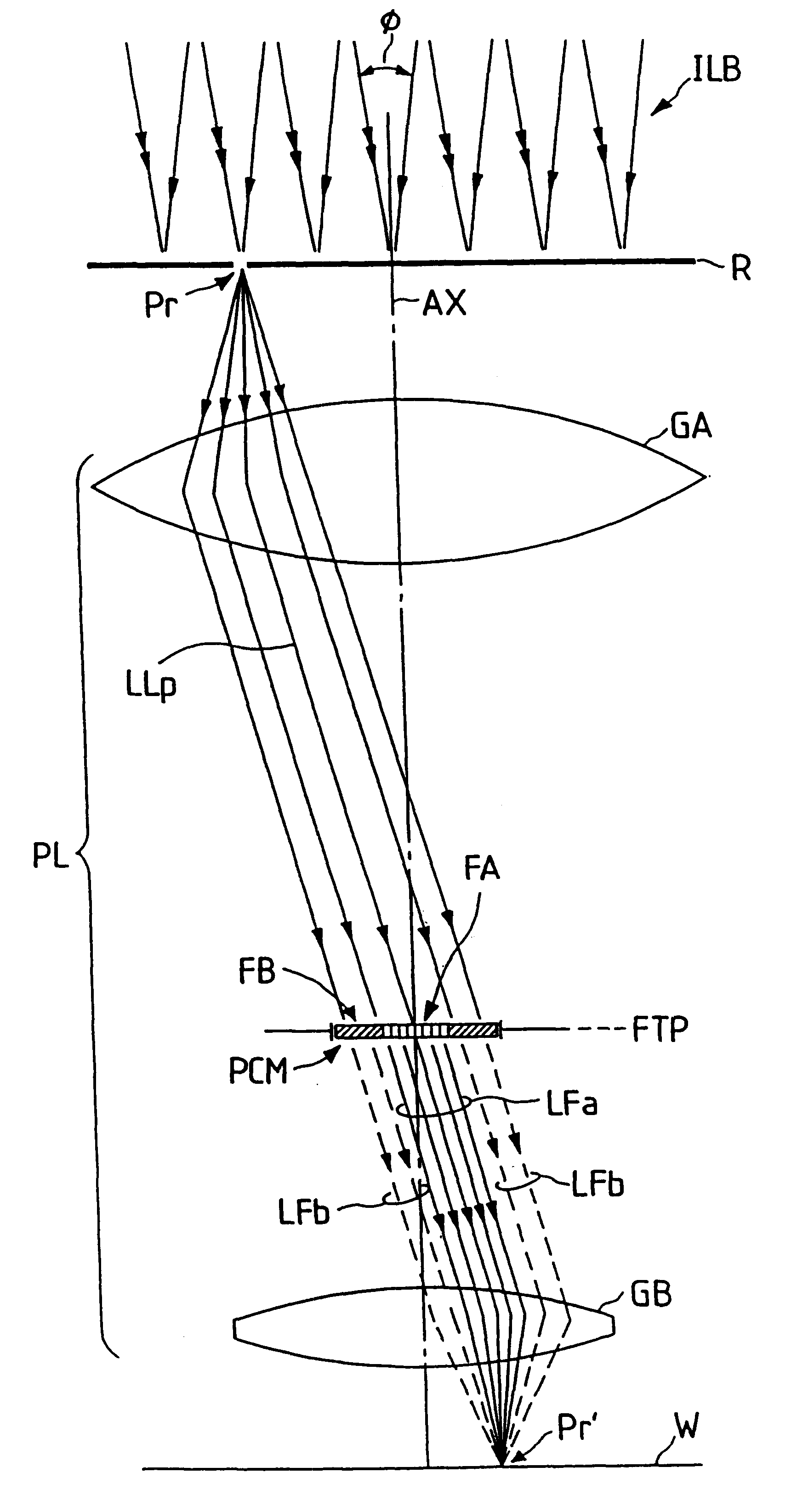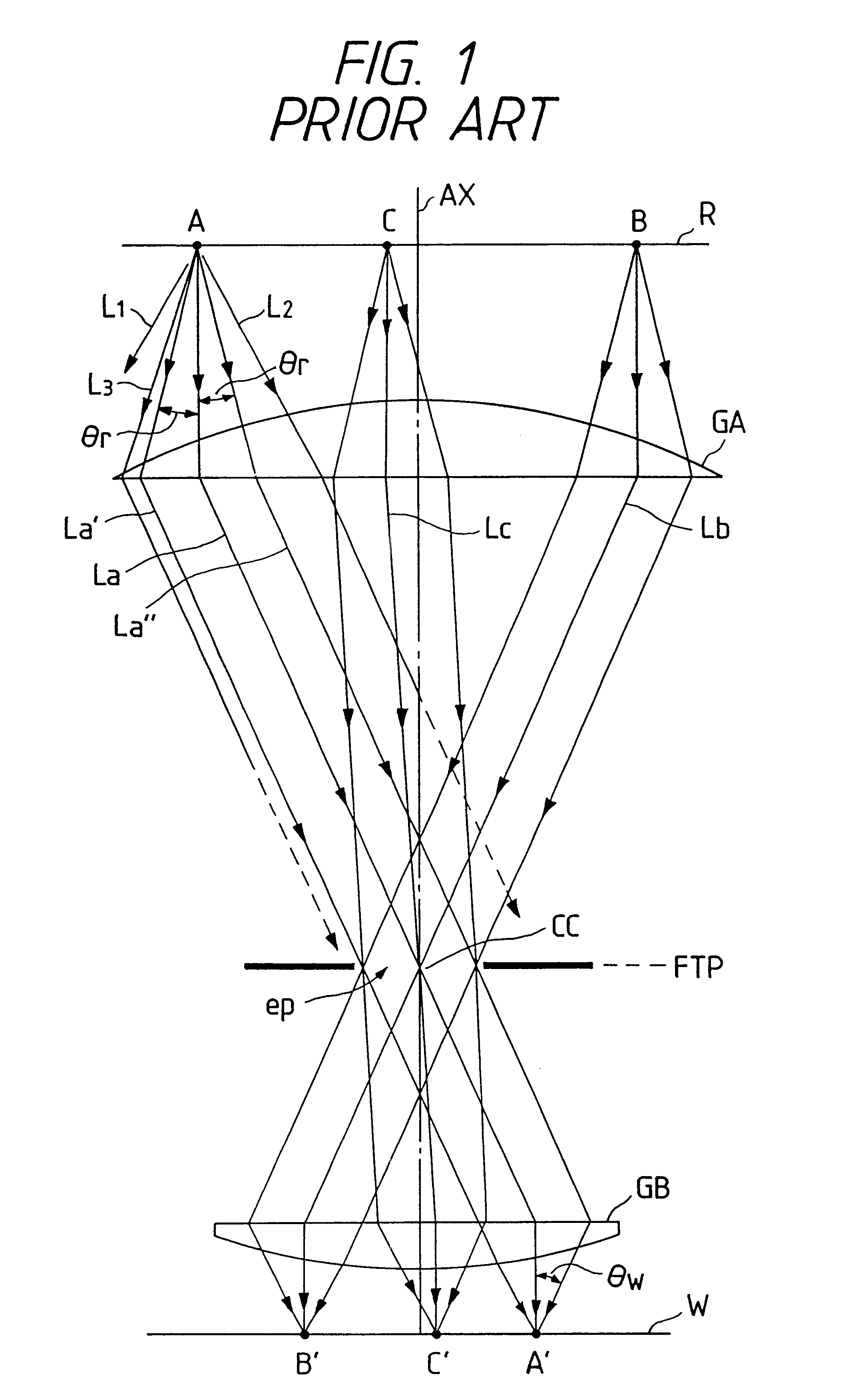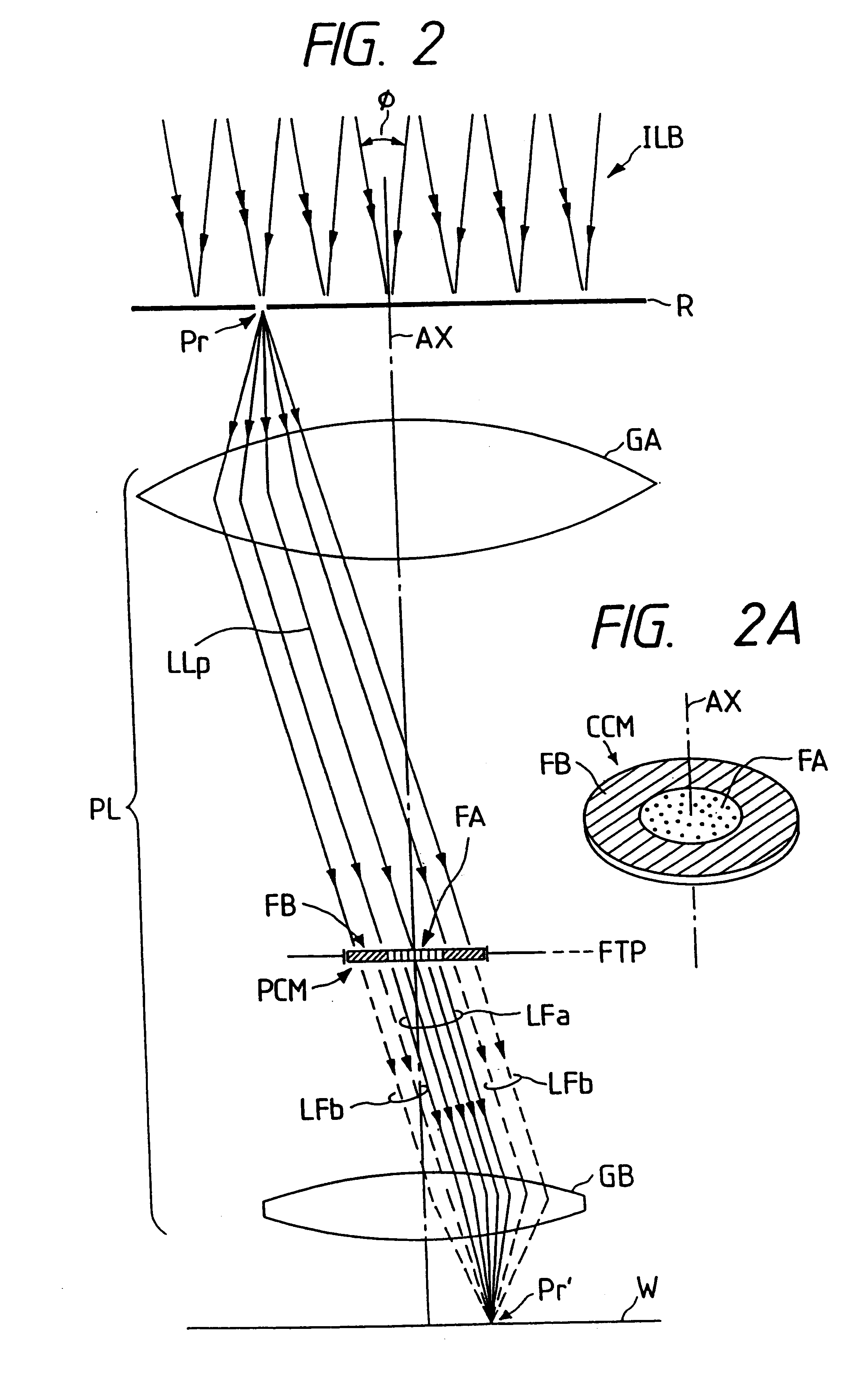Projection exposure method and apparatus
a technology of projection exposure and projection, applied in the direction of microlithography exposure apparatus, printers, instruments, etc., can solve the problems of poor resolution, limited use of glass materials, and limited use of quartz or fluorite as glass materials
- Summary
- Abstract
- Description
- Claims
- Application Information
AI Technical Summary
Problems solved by technology
Method used
Image
Examples
embodiments 1-3 to 1-6
solved these problems, which will be described below. In these embodiments, the polarization property of illumination light ILB is changed using the polarization control element 6, as shown in FIGS. 8A to 8C.
FIG. 8A shows an example using a polarizing plate 6A as the polarization control element 6, with which the randomly polarized light from the mercury lamp is converted into linearly polarized light.
FIG. 8B shows an example using a combination of polarizing plate 6A as the polarization control element 6 and a quarter-wave plate 6B. The polarizing plate 6A converts the randomly polarized light into linearly polarized light, and the quarter-wave plate 6B converts the linearly polarized light into right-handed or left-handed circularly polarized light.
FIG. 8C shows an example using only a quarter-wave plate 6B as the polarization control element 6. If the light source emitting linearly polarized light, such as a laser, is used, illumination light ILB reaching the reticle is circularl...
embodiment 1-3
In EMBODIMENT 1-3 the direction of linear polarization can be also changed in such an arrangement that the half-wave plate FA.sub.1 is replaced by an optical rotatory material such as quartz crystal.
Next shown in EMBODIMENT 1-5 and EMBODIMENT 1-6 are constructions of PCM suitable for circularly polarized illumination light ILB. When the incident beam is circularly polarized, the direction of axis of half-wave plate or quarter-wave plate need not be rotated in accordance with polarization property of illumination light, which is convenient.
In EMBODIMENT 1-5 PCM 105 is basically the same as PCM 103 as described above. Then the direction of rotation of circularly polarized light is inverted after passing through the half-wave plate FA.sub.1, while the direction of rotation of circularly polarized light is not changed after passing through the transmissive portion FB.sub.2 for example of quartz plate. In EMBODIMENT 1-3 or EMBODIMENT 1-5, the annular transmissive portion FB.sub.1 may be ...
embodiment 1-9 and embodiment 1-10
are next described.
In EMBODIMENT 1-9, PCM 109 has a triple structure of a central, circular transmissive portion FA.sub.1, an immediately-adjacent, peripheral, annular transmissive portion FB.sub.2 and a further peripheral, annular transmissive portion FB.sub.3. The circular transmissive portion FA.sub.1 and the outermost annular transmissive portion FB.sub.3 are polarizing plates which transmit a beam in the same polarization state, and the intermediate annular transmissive portion FB.sub.2 is a polarizing plate which transmits a beam in a polarization state perpendicular thereto. An emergent beam from PCM 109 is polarized in directions as shown. A beam through the circular transmissive portion FA.sub.1 is in a polarization state different in polarization direction from that through the intermediate annular transmissive portion FB.sub.2, which increases the depth of focus according to the principle as described hereinbefore. Further, a beam through the circular transmissive portion...
PUM
 Login to View More
Login to View More Abstract
Description
Claims
Application Information
 Login to View More
Login to View More - R&D
- Intellectual Property
- Life Sciences
- Materials
- Tech Scout
- Unparalleled Data Quality
- Higher Quality Content
- 60% Fewer Hallucinations
Browse by: Latest US Patents, China's latest patents, Technical Efficacy Thesaurus, Application Domain, Technology Topic, Popular Technical Reports.
© 2025 PatSnap. All rights reserved.Legal|Privacy policy|Modern Slavery Act Transparency Statement|Sitemap|About US| Contact US: help@patsnap.com



